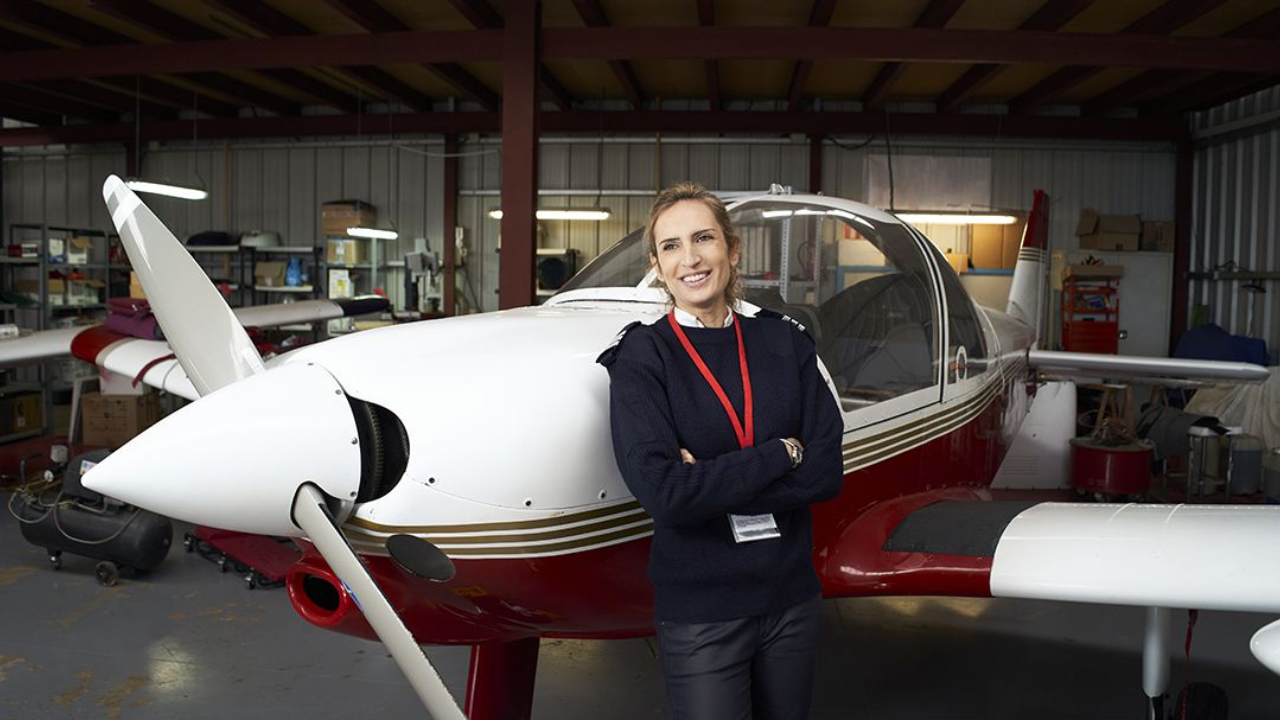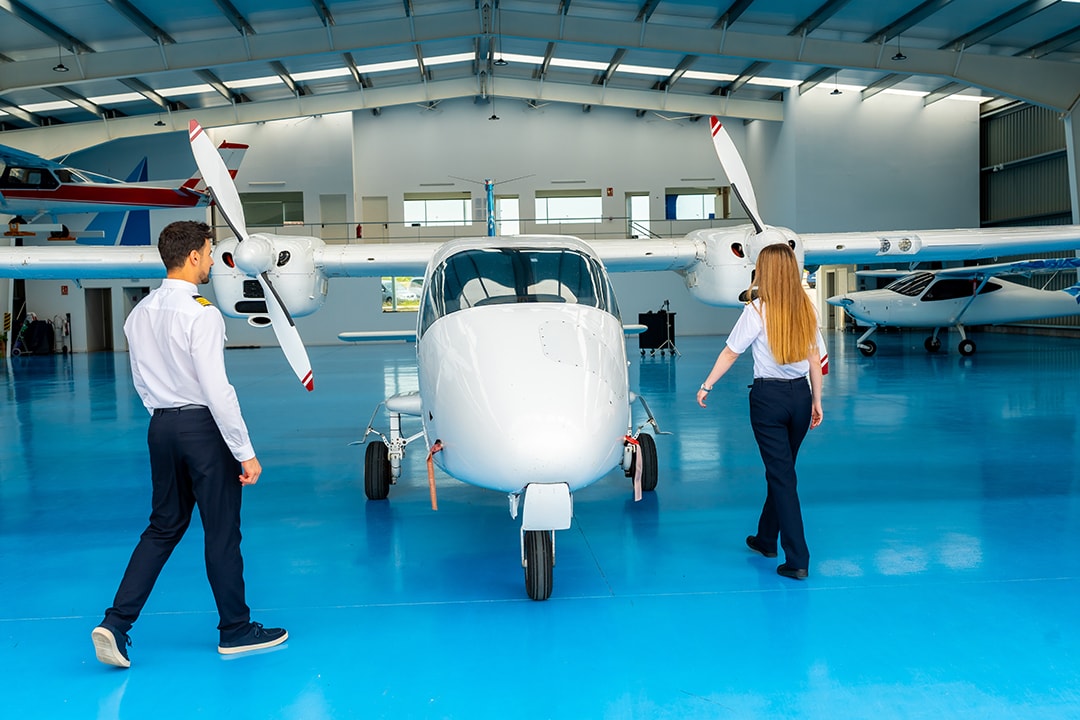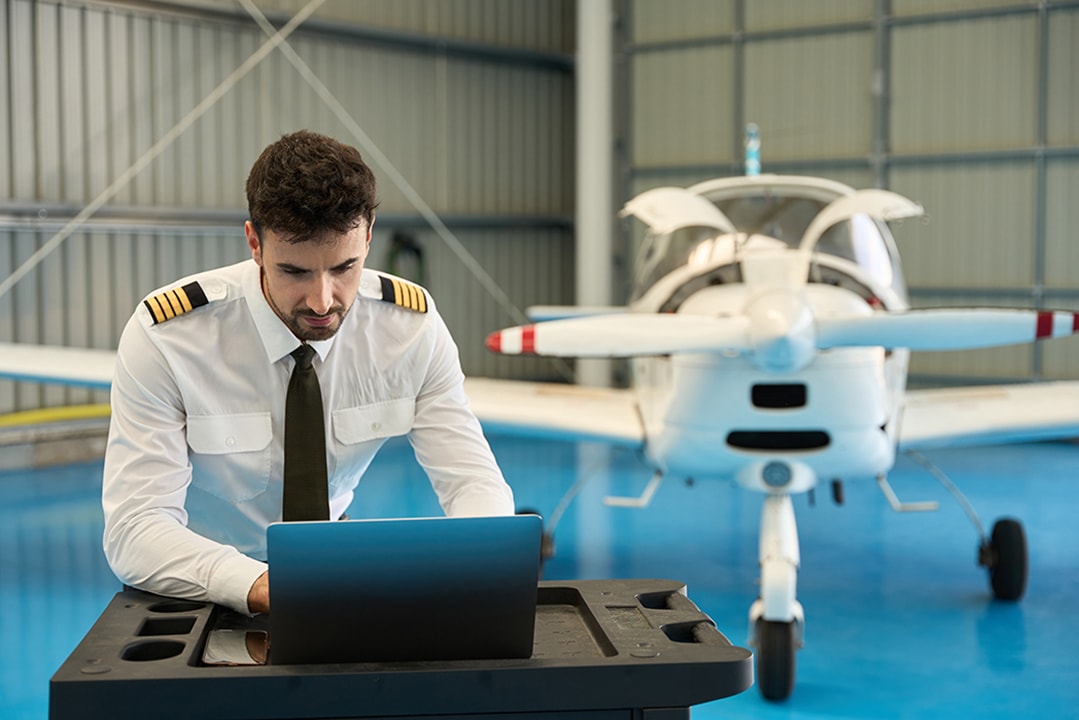Pilot Training: Your Path to a Successful Aviation Career
Sep 17, 2025
Ready to take to the skies? Pilot training is your essential first step toward a thrilling aviation career. From mastering flight basics to earning your pilot certificate, this guide covers everything you need to know to soar confidently.
Discover how to choose the right flight school, pass exams, and advance your skills for success in the cockpit.
Introduction to Aviation
Embarking on the journey to become a pilot begins with understanding the fundamentals of flight training and the various steps involved in earning your pilot certificate.
This process includes learning about the different types of pilot certificates available, such as the private pilot license and commercial pilot license, which serve as essential milestones in your aviation career.
Ground school plays a crucial role in this journey by providing the theoretical knowledge needed to navigate the skies safely and confidently. Additionally, passing the FAA knowledge test is a significant requirement that helps ensure you have a solid grasp of aviation regulations, weather conditions, and flight procedures.
As you start learning, it's important to explore the diverse career paths that the aviation industry offers. Whether you aspire to become an airline pilot commanding large commercial aircraft or a flight instructor teaching new students, each path requires dedication and skill development.
Building a strong foundation through pilot training helps you acquire the necessary skills and knowledge to succeed. With focused training, access to modern aircraft, and comprehensive resources, you can prepare yourself to meet the challenges of flying and advance your career in this exciting and dynamic field.
Choosing a Flight School
Factors to Consider
Selecting the right flight school is a crucial step in your pilot training journey. It's important to research and compare various flight schools to find one that aligns with your personal goals, budget, and learning preferences.
Consider key factors such as the school's location whether it's convenient for you to attend regularly and the cost of tuition and training fees. Additionally, pay close attention to the types of aircraft used in training, as modern and well-maintained aircraft can enhance your learning experience.
A flight school with experienced instructors who have a proven track record of successful completion rates can provide the guidance and support necessary to help you achieve your pilot certificate efficiently and confidently.
If you're looking for reputable programs in the eastern United States, many students choose Virginia aviation schools for their strong industry reputation, modern training environments, and proximity to high-traffic airspace ideal for real-world experience.
Beyond the basics, look for flight schools that offer supplementary resources like online courses and interactive tools, which can help reinforce your ground school knowledge and prepare you for the FAA knowledge test.
Evaluating the school's facilities and equipment is equally important; access to modern aircraft and advanced simulation technology can make your training more effective and realistic. By choosing a flight school that combines quality instruction, up-to-date equipment, and comprehensive training options, you set yourself on a path to mastering the skills needed for a successful aviation career.
This careful selection process ensures that you receive the best possible foundation to advance through your pilot training, from your first flight to earning your private pilot license and beyond.
Ground School
Learning the Fundamentals
Ground school is a vital part of pilot training, where aspiring pilots gain a comprehensive understanding of the essential principles of flight and aircraft systems. During this phase, students learn how airplanes operate, including the mechanics of flight, aerodynamics, and the various systems that keep an aircraft functioning safely.
Additionally, ground school covers critical topics such as weather conditions, which pilots must interpret accurately to navigate safely through different atmospheric environments. Pilots also become skilled in using instruments and charts for navigation, which are crucial for flying in diverse weather and visibility conditions.
Beyond technical knowledge, ground school provides thorough instruction on the regulations and procedures set forth by the FAA, helping students prepare for the FAA knowledge test. This preparation involves learning how to access and use a variety of study resources effectively, including textbooks, online courses, and interactive tools.
By developing a strong foundation in aviation theory and concepts during ground school, students build the confidence and skills necessary to succeed in their flight training and progress toward earning their private pilot license.
This stage ensures pilots are well-prepared to handle the challenges of flying safely and efficiently as they advance in their aviation careers.
Earning a Pilot Certificate

How to Get Private Pilot License
Obtaining a private pilot license is a significant milestone in your aviation journey and requires meeting specific minimum requirements, including age and flight experience. Typically, you must be at least 17 years old and complete a set number of flight hours to qualify.
During this phase, you will undergo comprehensive flight training that covers essential skills such as takeoff, landing, navigation, and emergency procedures. The training culminates in a checkride, a practical flight test administered by a certified FAA examiner, where you demonstrate your ability to operate an aircraft safely and confidently.
Successfully passing this checkride is crucial to earning your private pilot license, which grants you the privileges to fly solo or with passengers in various types of weather conditions.
Beyond meeting the technical requirements, earning a private pilot license also involves understanding the responsibilities that come with it. As a licensed private pilot, you will learn about the different types of flying, including recreational and cross-country flights, and how to operate an aircraft efficiently and safely.
This includes mastering flight planning, communication with air traffic control, and adhering to FAA regulations and procedures.
Developing strong skills and confidence during this stage sets a solid foundation for your future aviation career, whether you aim to advance to commercial pilot training or explore other specialized flying opportunities.
With focused instruction and hands-on experience, you will be well-prepared to take command of an aircraft and enjoy the freedom and excitement that come with being a private pilot.
Advanced Training
Recurrent Training
Recurrent training plays a vital role in a pilot's career by ensuring they remain current with the latest developments, regulations, and best practices in aviation. This ongoing training is not just a requirement but a crucial component for maintaining safety and proficiency in flying.
Pilots must regularly participate in recurrent training sessions to refresh their knowledge of flight procedures, emergency protocols, and updates in aviation technology.
Efficient completion of these training requirements helps pilots stay confident and prepared to handle various flying conditions and challenges, ultimately contributing to safer skies for all.
In addition to meeting regulatory requirements, recurrent training offers pilots an opportunity to develop a personalized plan for continuous professional growth. This includes exploring different types of advanced training such as instrument rating and multi-engine training, which enhance a pilot’s skills and expand their qualifications.
Keeping up-to-date with the latest FAA regulations and procedures through recurrent training ensures that pilots maintain their competitive edge in the industry.
By actively participating in recurrent training, pilots demonstrate their commitment to excellence and readiness to take on new responsibilities, whether advancing their career or improving their command of modern aircraft.
Online Learning Options

Online Courses
Online courses have become an increasingly popular and valuable component of pilot training, offering aspiring pilots the opportunity to learn essential aviation concepts and skills from the comfort of their own homes. These courses cover a wide range of topics, including flight theory, FAA regulations, weather conditions, and navigation techniques, providing a flexible and convenient way to supplement traditional flight training.
By exploring the various online courses and resources available, students can tailor their learning experience to fit their individual schedules and learning styles, making it easier to balance training with other commitments.
The flexibility of online learning also allows pilots to stay current with the latest developments in the aviation industry, ensuring they are well-prepared to meet the demands of their flight training and career advancement.
In addition to the convenience and flexibility, online courses often include interactive tools such as videos, quizzes, and discussion forums that enhance the learning experience and promote engagement.
Many programs provide access to a network of instructors and fellow students through online forums and discussion groups, fostering a supportive community where learners can ask questions, share insights, and receive guidance.
Evaluating the quality and effectiveness of these online courses is essential to ensure they meet industry standards and contribute meaningfully to a pilot’s education.
Developing a structured plan to incorporate online courses alongside hands-on flight training can help students maximize their progress and confidence, ultimately supporting their successful completion of pilot training milestones such as the FAA knowledge test and earning a private pilot license.
Career Development
Building Experience
Embarking on a career in aviation offers a variety of exciting paths, such as becoming an airline pilot or a flight instructor. Each path requires dedication, skill-building, and strategic planning. Learning about these different career options early on helps you set clear goals and understand the steps needed to advance.
Whether you dream of commanding large commercial aircraft or teaching new pilots, developing a plan tailored to your ambitions is essential. Building experience involves not only accumulating flight hours but also gaining exposure to different types of flying, such as cross-country, night, or instrument flying, which broadens your skills and prepares you for diverse flying environments.
Networking and relationship-building play a crucial role in career advancement within the aviation industry. Establishing connections with industry leaders, instructors, and fellow pilots can open doors to new opportunities and provide valuable mentorship.
Maintaining a well-organized portfolio showcasing your flight experience, certifications, and qualifications is an effective way to demonstrate your progress and professionalism to potential employers or training programs. By actively engaging with the aviation community and continuously developing your skills, you position yourself for long-term success and growth in this dynamic and rewarding field.
Career Paths
Opportunities and Specializations
The aviation industry offers a wide range of exciting career paths for those passionate about flight and aviation. Beyond becoming a pilot, you can explore roles such as mechanic, responsible for maintaining and repairing aircraft to ensure safety and performance, or air traffic controller, who plays a critical role in managing the safe and efficient movement of aircraft in the skies and on the ground.
Additionally, there are specialized areas within aviation like aviation management, which involves overseeing airport operations and airline logistics, and aviation safety, focusing on developing and implementing safety protocols to protect passengers and crew.
Understanding these diverse opportunities helps you identify the path that best fits your interests and skills, setting a solid foundation for your aviation career.
Developing a clear plan for advancing your career is essential in this dynamic field. Continuous learning and professional development are key components to staying current with evolving regulations, technologies, and industry standards.
Gaining experience in different types of flying, such as cross-country navigation, night flights, or instrument flying in varied weather conditions, broadens your skill set and prepares you for specialized roles. By actively pursuing certifications, additional ratings, and relevant training, you enhance your qualifications and increase your chances of career advancement.
Whether your goal is to become a commercial airline captain or a flight instructor, embracing lifelong learning and gaining diverse flying experience will help you achieve your ambitions and thrive in the competitive aviation industry.
Flight Training Programs

Structured Programs
Flight training programs come in various formats, designed to meet the diverse needs of aspiring pilots. Structured programs provide a clear, step-by-step outline of the lessons and milestones necessary to progress efficiently from beginner to certified pilot.
These programs often combine classroom instruction, ground school, and hands-on flight training with experienced instructors, ensuring students build a solid foundation of knowledge and skills.
When evaluating different flight training programs, it’s important to consider their quality and effectiveness, including the credentials of the instructors, the condition and modernity of the aircraft used, and the success rate of students in passing FAA knowledge tests and checkrides.
A well-structured program not only prepares students to earn their private pilot license but also sets them up for continued success in advanced training and recurrent training throughout their aviation careers.
Choosing the right flight training program involves developing a personalized plan that aligns with your schedule, learning style, and career goals.
Some programs offer flexible options, including online courses and interactive tools, which allow students to study theoretical concepts at their own pace before applying them in the cockpit.
For students seeking a faster route to certification, many schools offer accelerated pilot training programs that condense the curriculum into a shorter time frame while maintaining rigorous safety and quality standards.
Access to a supportive network of instructors and fellow students through online forums and discussion groups can enhance the learning experience by providing answers to questions, sharing insights, and fostering a sense of community.
Ultimately, finding a program that fits your individual needs and provides comprehensive resources will help you confidently complete your pilot training and achieve your dream of becoming a skilled, knowledgeable pilot ready to advance in the competitive aviation industry.
